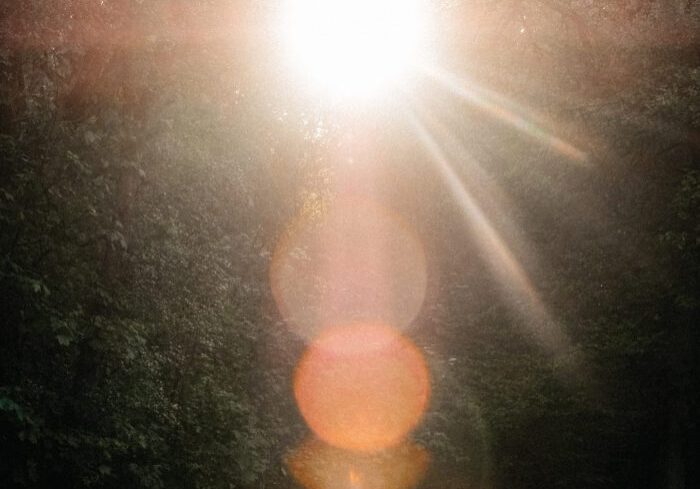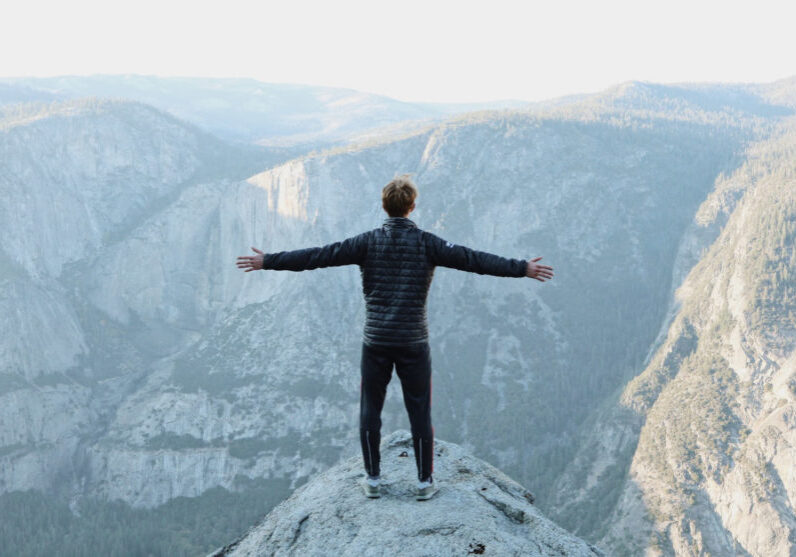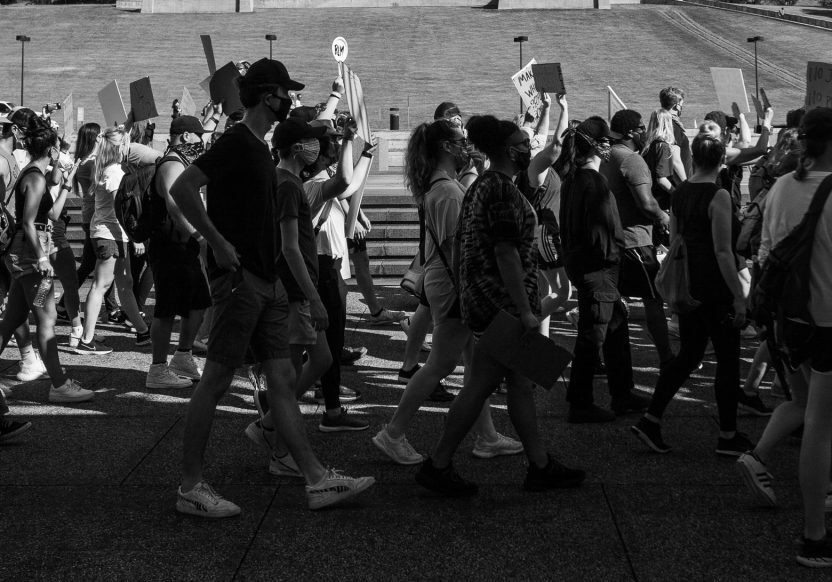Do Our Lives Matter to God? Does God’s Life Matter to Us?
Questions: “What a mystery suffering is! And why does a loving God allow it is a question that I struggle with all the days of my life. I continue to seek on a daily basis for an answer and all I get is a call to trust and believe that God is with us in our suffering and that good comes out of every situation, no matter how terrible. So, I am starting to pray more for courage and wisdom and a big heart to love our God with all my strength and my neighbor as myself.” Lupita V.
“I am struggling with “the path of burning love through the crucified Christ”. Last month my retarded, non verbal daughter slipped out of the house unnoticed. She was missing for hours before she was found…safe & sound. Today I sat in church & wept for the families who have had loved ones disappear never to be seen again. The agony that such a loss must inflict on them is unimaginable. I would have preferred my daughter to have been found dead than not at all. I just repeatedly asked God that if He is a God of love, why does He allow such unfathomable pain. I now pray for those suffering families on a daily basis….while questioning the mystery of Divine Love.” Rita S.
 Robert:
Robert:
We live in a world racked with inescapable pain; our lives too often chocked by seemingly nonsensical moments of suffering. American essayist and poet Henry David Thoreau once observed: The mass of [persons] lead lives of quiet desperation. What is called resignation is confirmed desperation. There are those times, more frequent perhaps than we care to admit, when in desperation and resignation, we think our life and, even more alarming, all of life does not matter, is not imbued with meaning or purpose. There are those times when we have tried and tried, and worked and worked, then all of our attempts, our dedicated efforts of love appear to collapse into ashes. We can think our life—all of life—does not matter. There are those unfortunate circumstances in which we are forced to endure the dissolution of our most cherished relationships—marriages, friendships, fathers with sons, mothers with daughters, families with families, and on and on goes the list. And we think our life—all of life—does not matter. There are those hopeless nights of self-alienation—amplified all the more during these infinite days of quarantine—when healthy self-awareness inconspicuously fades from our hearts leaving an overwhelming sense of empty worthlessness. And we can easily think our life—all of life—does not matter. Throughout our world, we are indeed faced with astonishing absurdity, violence, destruction, death, and the treacherous tide of corrosive contempt, in all its insidious forms. It is truly little wonder why, beset by this magnitude of heartlessness, we exclaim, “What kind of God would allow all of this hideousness to take place?!” “How could a ‘God of life’ possibly permit so many deadening and death-dealing activities?!” “Why would I—a relatively rational, practical, and intelligent person—devote my precious time and energy to believing in a benevolent source of life when so much of life seems anything but benevolent?!” “In the midst of the horrors and heretics of humanity, why would I persist in thinking that my life, our lives, all of life matters at all?!”
Such questions and comparable others mark the perennial question of theodicy, a term coined by Gottfried Wilhelm Leibnitz to describe the vindication of God’s compassion and goodness, mercy and love, in the presence of events that directly contradict these divine attributes. Western Christianity, particularly the Catholic Church, certified Augustine’s notion of original sin to explain the situation of evil, with its corresponding symptoms of suffering and pain, in the world. The assumption that the origin of humanity took place in a paradisaic Garden of Eden with two human actors who single-handedly disrupted the integrity of divine creation and thus set in perpetual motion the all-embracing disease of sin, suffering, and death sufficed until the paradigm-shifting revelations of Darwinian evolution (and those who seek to update Darwin’s theories) as well as that of modern science. These new worldviews challenged (and continue to challenge) ancient cosmologies and outmoded biological understandings of the human person. For instance, with the knowledge of an approximately 13.8-billion-year-old expanding universe—a universe with potentially billions of years ahead of it—a literal reading of Genesis is no longer an adequate account of creation nor a helpful archetype for coping with the reality of life’s deterioration.
Like the early Church Fathers, we must be keen observers of the cosmos and carefully resynthesize the theological wisdom of the past within a contemporary philosophical framework that enables us to speculate on matters of an Incarnational God artfully, cogently, and responsibly. For instance, how do conceive of the doctrine of the Incarnation in an expanding, unfinished universe? This inquiry formed the heart of Pierre Teilhard de Chardin’s mysticism, namely, to have faith in God demanded just as much faith in the world. For him, it was literally to see with the mystical eyes of faith that God was unfolding through the ongoing acquisition of higher consciousness. Thus, the universe coming to be is Christ coming to be. On the level of human experience, the ones in whom evolution is now conscious of itself,[1] we are gifted with a clearer transparency of the energy of love—the presence of God—driving and drawing our lives and the life of world to completion.
Why is this principle of “Christogenesis” so crucial for us to grasp, especially when confronted with the tortuous twist of suffering, pain, and death? First, it dispels the notion of Christ’s involvement in the world as only redemptive, as intended to right a terrible human wrong. Rather, it understands the role of Christ as God’s primordial desire to share in the process of newly actualized formations of creativity and novelty. As created co-creators, our words and deeds radically affect and form the consciousness of God, a God who chooses to become more fully God through the limitations of finite existence; a God whose continual self-emptying (kenosis) is a direct expression of the process of evolution and the eventual emergence of the cosmotheandric whole (a conscious experience of ultimate reality as an indivisible God-person-world wholeness). Each new moment of divine-human entanglement, in other words, becomes a new experience of humanity and divinity for God.
The life of Jesus, the chief personalization of Christ in human form, demonstrated that suffering and death are indispensable to the fullness of life. This type of death, however, is paschal: it belongs to a natural cycle of growth and development that affects the entirety of existence. In this way, Jesus’ life serves an exposition of the price of Christogenesis; he teaches us that the whole cosmos is inherently Incarnational and directs our attention to new ways of giving birth to the inner face of matter. The transformative power of love with which Jesus furnishes us is what undergirds and makes possible the integrity of integral union. It is a love that inaugurates a new consciousness of being human, a new manner of acting in the world that seeks to welcome the promise of instability, change, and death—the very components required of evolution, the requisite essentials that create space for the complete emergence of the cosmic Person.
Given the foregoing, are all acts of death necessary for Christogenesis? While natural and regular growth cycles embedded within the process of creation are one thing, what about wanton undertakings of evil? What about genocide, suicide, infanticide? What about all other forms of savage and vicious treatment evidenced in the church, politics, and elsewhere? What about when we simply fail to deliver on our unique responsibility for bringing the God-world relationship to completion? Does this negligence qualify as necessarily evil? How do we explain the different yet ongoing degrees of darkness that engulf us all?
Our very own Ilia Delio brilliantly and eloquently addresses this issue of darkness in terms of Jungian depth psychology. In her recent blog posting on “Pain and New Creation,” she reflects on the implications of Jung’s insights into the life of Jesus and relates them to the “paschal” events of Holy Week. She writes:
“According to Jung, humanity’s relation to divinity lay in its relation to the unconscious as the ground of consciousness and meaning. God is the ground of being. Authentic religion functions in the unconscious by imbuing humanity with a natural sense of the divine. Divinity approaches consciousness from no other source than one’s own inner being. God and human are to be united in human consciousness as the depth meaning of history, both personal and collective. This historical process is at once redemptive of the divine ground and of human consciousness. Identifying Jesus as truly God and truly human is a description of the process of individuation brought to full consciousness, whereby divinity is brought to its completion in humanity through the ego’s transformation in the divine source. In the incarnation, God becomes conscious and is completed by humankind in directed evolution.”
Delio continues:
“Bringing Jung’s insights to the events of Holy Week leads us to see Jesus as one who, fully conscious of God in his life, opened up to the pain and darkness of the human experience. Only by entering into the darkness of suffering and rejection could Jesus fully know (and thus reveal) the depths of God’s love. For the fullness of Godly life requires that the realm of the unconscious—where the darkness of pain, suffering, rejection linger—be brought to the level of conscious acceptance. Only then is the self released from the ego and fully united with God. The Godliness of Jesus is not found in his human works of mercy and justice but in his ecstatic pain of love. For love to be true requires that one become vulnerable in the face of the other, in order to attain wholeness. The “yes” of Jesus, like the “yes” of Mary, reflects a profound consciousness of God’s presence, the very source of life within. God seeks to become whole in us but such wholeness requires a death of the ego and a rebirth of the self in God. The unconscious, we might say, is God’s self-emptying into the fragile limits of humanity. God suffers with us the conflict and tragedy of life because God desires the wholeness of life, which includes our consent to love. If the Christian God is a God of sacrificial love, then pain—the birth pain which opens to the fullness of life—is Creator pain. A self-sufficient God cannot create out of love, for love longs for union, for the reconciliation of opposites, for wholeness, which self-sufficiency contradicts. Christ-love is sacrificial love which embodies the death-pain of reconciliation with God. Darkness is not the opposite of light but the fullness of light and only by embracing the darkness of our lives [as Jesus did] is God born in us as the light of the world.”[2]
Indeed, wholeness comes at an invaluable price. It requires the dynamic of individuation: the ceaseless interaction between the ego and the unconscious, the human and divine, which is the precise material through which God is able to become fully conscious and thus fully God. This higher consciousness necessitates that we plunge into the abyss of the unconscious and honestly name, claim, and transform the aspects of our psyches that preclude us from enacting the love that brings the God-world to the completion. There are those times in our lives, more frequent perhaps than we care to admit, when in desperation and resignation, we fail to give new life to God by transforming our own through the power of love. And we think our life—all of life—does not matter. We must ask ourselves daily, “Does God’s life matter to us?” If so, what are we doing to acknowledge and reverence the close and holy darkness that enables the full flowering of God’s immanent and inextricable involvement in the creative enterprise? Oh, yes, this reveals that our life—all of life—matters very, very much.
Notes:
[1] Pierre Teilhard de Chardin, The Phenomenon of Man, trans. Bernard Wall (New York: Harper and Row, 1959), 220.
[2] Ilia Delio, “Pain and New Creation,” March 30, 2021.
 View print-friendly version
View print-friendly version
4 Comments
Related Posts

A Whiteheadian Response: The God of Persuasion
Question: “Please help me to further understand, I thought that God did not direct our lives. We made choices, those choices CREATED—God’s presence is in the creation of the choice…


I wish you had answered her question with understanding and compassion rather than a theological treatise.
I understand my comment May not be published and that’s really OK. I wrote only because I was sad for the woman who asked the question.
Eloquent,Robert! Teilhardian and Delioian and much better than my understanding (or not understanding) of process or open theism!
Thank you, Robert. This speaks deeply to me, yet I am not able to put into words how – maybe affirmed for me the validity of my journey? This sentence(s) especially: Indeed, wholeness comes at an invaluable price. It requires the dynamic of individuation: the ceaseless interaction between the ego and the unconscious, the human and divine, which is the precise material through which God is able to become fully conscious and thus fully God. This higher consciousness necessitates that we plunge into the abyss of the unconscious and honestly name, claim, and transform the aspects of our psyches that preclude us from enacting the love that brings the God-world to the completion.”
I have lived the experience in the last 3-5 years of individuation – that is, the “ceaseless interaction between the ego and the unconscious…”. It is, to use a phrase coined by I think, Brene Brown, a brutiful journey, but once started, one can only say “yes” and “yes” again and again…
This topic deserves to be part of the discussion by the Seminar on God and the Human Future hosted by the Westar Institute.